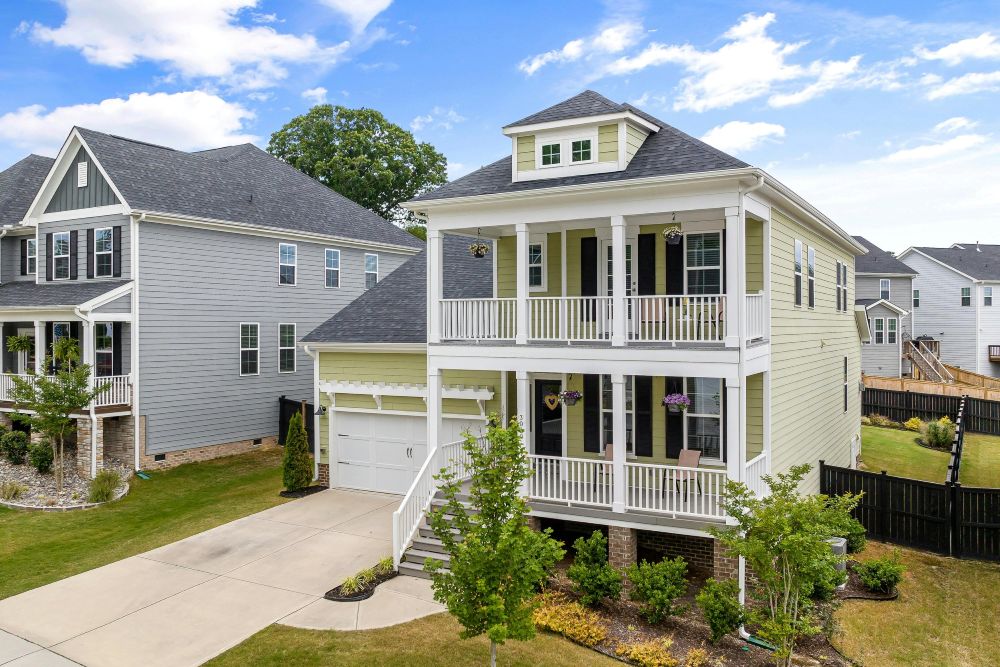The Hampton Roads region of Virginia, comprising seven distinct cities, is a popular area for short-term rental (STR) operations. However, each city has its own set of regulations governing short-term rentals, and understanding these nuances is critical for property owners who want to rent out their homes legally and successfully. If you’re considering renting your property in this region, it’s essential to understand the permitting process, restrictions, and unique requirements for each city.
1. Portsmouth
Portsmouth is one of the more relaxed cities in Hampton Roads when it comes to short-term rental permitting. The good news for property owners is that there are no restrictions on short-term rentals in Portsmouth. As a result, you can rent your property on platforms like Airbnb or Vrbo without needing to navigate complex city regulations or apply for a special permit. Things to Keep in Mind: While Portsmouth is lenient in its policies, property owners should still ensure they comply with general state and federal laws regarding health, safety, and taxes. Additionally, local zoning laws could still impact the rental type based on the neighborhood.
2. Suffolk
Similar to Portsmouth, Suffolk also has no specific restrictions on short-term rentals. There is no formal permitting process for STRs in this city, which makes it easy for homeowners to rent out their properties without worrying about local bureaucracy. Things to Keep in Mind: While the lack of formal restrictions is an advantage, it’s still wise to check for any updates to local policies or zoning changes that could affect your rental business in the future. Compliance with state laws related to taxes and safety standards will still be required.
3. Chesapeake
Chesapeake has specific zoning regulations regarding short-term rentals. These rentals are permitted only in two designated areas: the A-1 Agricultural District and the Historic and Cultural Preservation Overlay District (HC District). Property owners within these districts may apply for a conditional use permit to operate short-term rentals. Outside of these zones, short-term rentals are not allowed. Things to Keep in Mind: Property owners in Chesapeake should be cautious and seek advice before attempting to rent their properties short-term. Violating this ban could lead to fines or other penalties, so staying informed and compliant is essential.
4. Newport News
Newport News has regulations in place for short-term rentals, but they are still evolving. The city has some restrictions on STRs, but these are not yet clearly defined, and they are actively being voted on. Things to Keep in Mind: If you're considering renting in Newport News, keep an eye on any updates or changes to the city's zoning or permitting laws. Since the city council is still deliberating, these restrictions could change rapidly, so staying engaged with local government is crucial for avoiding compliance issues.
5. Hampton
Hampton has recently finalized its permitting process for short-term rentals, with specific regulations that homeowners must follow. One unique requirement in Hampton is a 1% density cap on short-term rentals within each of the city's 51 zones. Additionally, short-term rental properties must be located at least 300 feet away from another short-term rental. This density and proximity rule is specific to Hampton and must be carefully considered when applying for a permit.
For homeowners who meet these criteria, there is a Conditional Use Permit (CUP) process available. The application is accessible through the city’s official platform, and the process is designed to be clear and transparent, offering guidance for property owners and ensuring compliance with zoning and safety regulations. Things to Keep in Mind: For homeowners in Hampton, it’s important to follow the specific steps outlined on the city's official website. Ensure that all required documentation is submitted and that your property meets safety and zoning regulations before beginning your rental business.
6. Norfolk
Norfolk has a more detailed permitting process for short-term rentals, particularly for properties with different sizes:
For properties with 3 or fewer bedrooms, the permit process is fairly quick—usually taking about a month—without the need for additional public meetings.
For properties with 4 or more bedrooms, a Conditional Use Permit (CUP) is required. This is a much longer process, typically taking up to 6 months, involving multiple city council meetings, neighborhood civic league discussions, and a fee. The CUP process ensures the property complies with all city regulations, and permits are valid for two years. After that, the property owner can apply for a **5-year renewal** if no issues arise.
Things to Keep in Mind: Norfolk’s permitting process can be lengthy for larger properties, but if you maintain a good record, your renewal period can be extended. Norfolk also allows owners to hire third-party services to handle the permitting process, which can be particularly beneficial for owners unfamiliar with the complexities involved.
7. Virginia Beach
Virginia Beach has one of the most restrictive approaches to short-term rentals in the Hampton Roads region. Several years ago, the city voted that short-term rentals could only occur in the Oceanfront Overlay District – a designated area along the beach. If your property lies outside of this district, it is not eligible for short-term rentals (though rentals over 30 days are still permitted, including monthly-term rentals).
For properties within the Oceanfront Overlay District, a CUP process is required. The CUP lasts for 5 years, but homeowners must comply with additional requirements, such as an annual life safety inspection and a deck inspection every 3 years.
Grandfather Clause: If your property was used as an STR before 2018, it may be grandfathered in, meaning it could still operate as an STR outside of the overlay district.
Things to Keep in Mind: The Oceanfront Overlay District is highly competitive, and the CUP process can take time. Homeowners should ensure that their properties meet safety standards and be prepared for inspections.
How Host My Home Can Help
Whether you’re in Portsmouth, Norfolk, or Virginia Beach, understanding the rules governing STRs can help ensure a seamless rental experience. But if you’d prefer to be more hands off, experienced professionals can take the lead and help you maximize the potential of your earnings while staying compliant.
At Host My Home, we specialize in assisting property owners with the short-term rental permitting process, particularly in Norfolk and Virginia Beach. With a solid reputation and strong relationships with local city councils, we help owners navigate the complexities of getting approved for STRs. Our team handles the entire process for a fee, ensuring that all paperwork is submitted correctly, meetings are attended, and all regulations are met. Our involvement often plays a key role in helping owners pass their permits with ease, thanks to our established rapport with local officials.
Disclaimer: The information provided in this article is for general informational purposes only and is subject to change. Permit requirements for short-term rentals may vary and are frequently updated. Readers are encouraged to conduct their own research and consult relevant local authorities to ensure compliance with the most current regulations.


